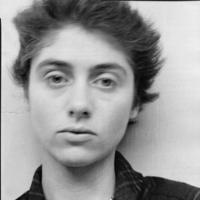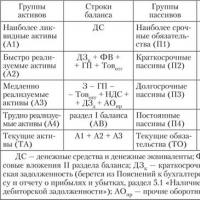English language. Professional retraining program for obtaining additional qualification "Translator in the field of professional communication". Translator in the field of professional communication MSU program translator in the field of professional communication
The Center for Innovative Language Strategies (CILS) announces recruitment for the professional retraining program "Translator in the field of professional communication".
Foreign language proficiency:
- a great opportunity to improve your professional competence;
- obtaining additional qualifications that allow you to combine special knowledge and translation skills;
- expanding their own career opportunities and increasing competitiveness in the labor market in their own country and abroad.
Additional vocational education"Translator in the field of professional communication" at CNFL will be the first step towards the realization of the most daring dream.
Classes are held according to curricula and programs that are constantly updated in accordance with modern methodological requirements and international standards in teaching foreign languages.
Teaching is conducted by highly qualified specialists, many of whom are acting translators.
The training provides a unique opportunity to obtain a diploma of the Financial University on professional retraining with the assignment of an additional qualification "Translator in the field of professional communication", which gives the right to conduct professional activity in the field of translation.
Duration of study: 2 years
Training is paid, payment is made by bank transfer after signing the contract.
Tuition fee: 37,000 rubles. per semester
Classes are held in the classrooms of the Financial University. The schedule of classes is compiled taking into account the schedule of classes at the faculties.
Lyubov Kurochkina: I graduated from the Interpreter in Professional Communication program in 2013 and still remember my teachers with gratitude. Worked at PwC for 3 years. Now I work in Russian company, but I actively use the acquired knowledge - as a hobby I play the game "Mafia" in English in the language center.
New enrollment for the winter semester 2019/2020 the year will run from August 26 to September 30, 2019. Classes start from October. The cost of training in the "Prices" section.
Enrollment in the program is carried out only on the basis of the results of the entrance test. We recommend that you self-assess your level of language proficiency, as this will help you choose the right course. Pass the test.
When registering for the program, you must have:
a copy of the diploma of the first higher education (notarized) or a certificate stating that you are a student of the university;
the test result that you will receive when passing the test.
The program invites students, undergraduates and graduates of universities of any specialties with a level of foreign language proficiency not lower than B1 on the scale of the European system of language competence (Common European Framework of Reference) to the additional educational program of professional retraining "Translator in the field of professional communication" (teaching languages: English, German, French, Spanish, Italian).
The duration of study is 2 years (4 semesters).
According to the test results, students are divided into groups of different intensity of classes (from 3 to 4 times a week).
- Profile 1 - Level of English proficiency C1 - Classes 3 times a week for all 4 semesters of study
- Profile 2 - Level of English proficiency B1 - Classes 4 times a week for all 4 semesters of study
- Profile 3 - Level of English proficiency B2 - Lessons 4 times a week (on the 1st year), then lessons 3 times a week (on the 2nd year)
In the middle of each semester, an intermediate assessment is carried out in order to continuously monitor the progress of students. At the end of each semester, students take tests and exams according to the curriculum. The training ends with the passing of the final exam on the theory and practice of translation and the defense of the final qualification work on written translation.
During the period of study, students master the following disciplines:
- practical course of a foreign language with elements of oral consecutive translation;
- course of oral consecutive and written translation;
- stylistics of the Russian language;
- theoretical grammar;
- introduction to the theory of translation;
- regional studies;
- history of foreign literature;
- lexicology;
- special courses.
At the end of the training, students who have successfully completed the training program receive diploma of St. Petersburg state university on professional retraining with the assignment of additional qualifications.
Since 2005, the program has become an experimental platform for the leading professional organization of translators in the country -Union of Translators of Russia , where the head of the program is Honored Professor of Moscow State University named after M.V. Lomonosova L.V. Polubichenko is the chairman of the scientific and methodological council and a member of the board.
Program Goals
- training of specialists in the field of specialized translation in order to improve professional qualifications
- development of practical skills of professional (oral and written) translation in combination with the study of the theory of language and translation theory
- general improvement of language competence (native and target languages)
- deepening knowledge about the world of the language being studied
- development of intercultural competence in order to increase the effectiveness of intercultural communication in the field of professional activity
The program is intended for those who seek to improve their professional competence in the field of foreign languages and obtain additional qualifications that allow them to combine their specialized knowledge and translation skills in the field of professional interests.
The target audience
- graduates in various fields of knowledge: economists, lawyers, specialists of other humanitarian areas, specialists of natural science and technical profile
- corporate clients that implement staff training in order to improve the skills of their employees
- senior students
- graduate students
Principles and objectives of training
- improving the general level of foreign language proficiency in oral and written forms
- development of universal translation skills from a foreign language into Russian and from Russian into a foreign language
- study of translation strategies and models
- active application in practice of the received theoretical knowledge in the field of interlingual and intercultural communication
- development and development of skills for the professional use of dictionaries and databases
- work with special terminology and expansion of the terminological apparatus in the professional field
- practical work with texts in the specialty
- development of skills in searching for terminological equivalents, translation correspondences
- improvement of Russian language proficiency in different functional styles of speech
- expansion and deepening of training through targeted elective (at the choice of students) courses that are focused on:
- expansion of the circle and more detailed development of practical skills of translation and interpreting in the field of professional interests of the student
- more detailed acquaintance with intercultural aspects of translation activity
Learning Outcomes
Graduates of the program have the following professional competencies:
- possess a system of linguistic knowledge about the main phonetic, lexical, grammatical, word-formation phenomena, spelling and punctuation, about the patterns of functioning of the studied foreign language, its functional varieties, in comparison with the Russian language
- are able to generate and understand oral and written texts in the studied foreign language in relation to the main functional styles in the official, neutral and informal situations communication
- are able to carry out interlingual and intercultural interaction in oral and written forms, both in general and in professional areas of communication
- are able to carry out pre-translation analysis of written and oral text, which contributes to the accurate perception of the original statement, the prediction of probable inconsistencies in the translation process and ways to overcome them
- are able to apply translation transformations to achieve the required level of equivalence and representativeness in translation
- are able to carry out post-translation editing of the translated text
- able to abstract and annotate written texts
- know the basics of modern information and bibliographic culture, are able to work with electronic dictionaries, translation memory programs and other specialized electronic resources to solve professional problems.
Upon completion of training, a diploma of Moscow State University is issued established sample on awarding the additional qualification "Translator in the field of professional communication". Persons who have not completed basic education receive a translator's diploma only after its completion.
Hostel for the period of study is not provided.
Languages and areas of professional specializationLanguage studied (one: according to the diploma of secondary vocational/higher education)
- English
- German
- French
- Spanish
Directions of translation specialization (in accordance with the specialty according to the diploma)
- economics and business
- right
- scientific and technical translation
The program is being led
- highly qualified teachers of translation and foreign languages of the Faculty of Foreign Languages and Regional Studies of Moscow State University
- practicing translators, members of the Union of Translators of Russia
Terms of study and scope of the curriculum
The duration of training is 2 years (with an intensity of 12 classroom hours per week).
Possible training partially in remote form. It is also possible to reduce the training period for persons with a first linguistic education and a high level of foreign language proficiency.Training program designed for 1500 academic hours.
Classes are held 3 times a week from 18.00 to 21.10 at the address: Leninskie Gory 1., Building 13/14.
The duration of the autumn semester is 13 weeks, the spring semester is 15 weeks.Program description
The professional retraining program "Translator in the field of professional communication" provides for:
- study of general theoretical disciplines
- study of special disciplines of practical orientation
- elective courses (at the choice of students)
- writing term paper in the 3rd and 4th semesters on translation problems related to the subject of first education
- translation practice
The final certification for the program is the state qualification exam in foreign language and translation.
Program Curriculum
General disciplines1. Practical foreign language course
2. Presentation technology and oral speech practice
3. Fundamentals of the theory of the language being studied with seminars on the grammatical aspects of translation
4. The world of the language being studied
5. The style of the Russian language and the culture of speech
Special disciplines1. Translation theory
2. Practical course of professionally oriented translation
- economics and business
- right
- socio-political and general humanitarian topics
- scientific and technical translation
09.07.17
Applicants
The line of purely translation programs includes the program "Translation and Intercultural Communication" in the bachelor's program and two programs "Training of translators in the field of economics, management and law" and "Theory and practice of intercultural communication" in the master's program. Is there a logical connection between these programs?
After studying in the program "Translation and Intercultural Communication", a graduate of our Bachelor's degree will be able to continue his translation training in our Master's program in these two programs.
As part of the program “Training Translators in the Field of Economics, Management and Law”, we will train multidisciplinary specialists, primarily those who are fluent in English, ready to work as lawyers, economists, managers. As in other educational programs of the Odintsovo campus, this program will concentrate the entire potential of MGIMO in training international specialists in the field of jurisprudence, world economics and management. We also expect that many of the graduates of this program, after working for several years in their specialty and gaining practical experience, will want to return to their home university and become highly paid teachers in English-language bachelor's and master's double degree programs.
A very interesting concept. Applicants can get acquainted with the purely formal features of translation programs on the website of the branch, get information from the selection committee. You are a professional translator. Tell us why you chose this particular profession, and what is attractive about it for today's youth.
I began to prepare for the profession of a translator from school - I studied at an "English" school, and the translation seemed to me the solution of a crossword puzzle in real time. English literature and other subjects that we studied at school in English strengthened my decision. Later, at the university practical work and now I find more and more confirmation of the correctness of my choice. An excellent translator must be encyclopedically educated. He must know almost everything in the areas in which he translates or teaches. According to his training, the translator must correspond to the intellectual level of the person to whom he translates. It sounds a little ambitious, but in fact it is. Scientists, ministers, writers come out of translators. For example, Dmitry Vitalievich Trenin, director of the Carnegie Moscow Center, translator by training, has become one of the country's leading political scientists and remains an excellent translator. Minister of Foreign Affairs of Russia in 1998–2004 was Igor Sergeevich Ivanov, a translator by education. The eldest of the Strugatsky brothers, Arkady Natanovich, also a professional translator, graduated in 1949 from the Military Institute of Foreign Languages.
In addition to the desire to become a translator in the broadest sense of this profession, an applicant must have certain personal qualities needed to "learn to be an interpreter"?
As a specialist in any creative profession, the requirements for a translator are very high. Translation activity requires a willingness to work hard and learn no less intensively. The translator must have high literacy, knowledge of realities, idioms and phraseological units. He must actively speak his native and foreign languages, have good diction, the ability to concentrate in stressful situations, have physical endurance, reaction, and resistance to any external influences. Successful translators tend to be calm, outgoing individuals with excellent social skills. They are not lost in public and are in good physical shape.
- Tell us more about what the job of an interpreter is.
To put it simply, the work of a translator is a translation from one language into another, in which the translator must be able to accurately convey the essence of the original message, while taking into account the audience for which the message is intended, cultural features and the specifics of its thinking and perception, and correctly use lexical means ( such as biblical, Latin, jargon, etc.) and the forms of their presentation. The translation should render to target audience the same impact as the original message.
- Whom do you see as students of your translation programs?
Students entering our programs must be motivated to acquire competencies that ensure their competitiveness and effective self-realization in the professional field after graduation from MGIMO. A translator needs a professionally organized flexible memory that allows him to absorb a large amount of information and quickly forget unnecessary information. His memory should contain large volumes of vocabulary in an active format, both in his native and in a foreign language. The translator must have the ability to remember briefly and actively use a significant number of language units. The translator's memory will definitely have to be trained. When translating, you need to quickly switch from one language to another. Therefore, many translation teachers put mental stability in first place among the qualities of professional suitability. Forced prolonged speaking, frequent language switching, increased speech speed, the need to focus on other people's thoughts for a whole day, complete submission to the speaker require the translator to have physical and psychological endurance, special strong-willed qualities, and the ability to find a way out of difficult situations. In addition, the translator must be aware that he is an expert not only in the field of a foreign language, but also in the field of culture of two peoples and countries at once. He instantly perceives and processes information, selects the most appropriate translation option. The hardest thing in the work of a translator is to find such an option.
We are talking about the training of translators. But officially translation programs are held under the rubric of training specialists in the field of “intercultural communication”. What is the feature here?
Intercultural communication is communication between speakers of different cultures, when the differences between these cultures lead to any difficulties in communication. These difficulties are primarily related to language barrier, with the difference in expectations and prejudices characteristic of representatives of different cultures.
The concept of intercultural communication comes from the assumption that in the same circumstances people experience the same feelings and sensations, which allows them to understand other points of view, ideas and different cultural phenomena, i.e. imagine yourself in the place of another person, accept his worldview, understand his feelings, desires and actions. The role of the translator in modern conditions has expanded significantly and, in addition to knowing the language, requires him to have “expertise” in the field of intercultural communication.
Admission to bachelor's programs in the direction of "linguistics" in USE results(Russian language, foreign language, history). Documents are accepted until July 26 at the MGIMO Admissions Committee on Vernadsky Avenue, 76 or at MGIMO-Odintsovo (Moscow Region, Odintsovo, Novosportivnaya St., 3).
Odintsovo branch
 About freaks and people: indecent pictures of Diane Arbus
About freaks and people: indecent pictures of Diane Arbus How to take amazing photos
How to take amazing photos How to photograph waterfalls How to photograph a fountain with a DSLR
How to photograph waterfalls How to photograph a fountain with a DSLR About Steve McCurry and his photos
About Steve McCurry and his photos How I became a photographer (and what it takes)
How I became a photographer (and what it takes) How to take pictures with an external flash
How to take pictures with an external flash The essence and significance of the liquidity and solvency of the enterprise
The essence and significance of the liquidity and solvency of the enterprise